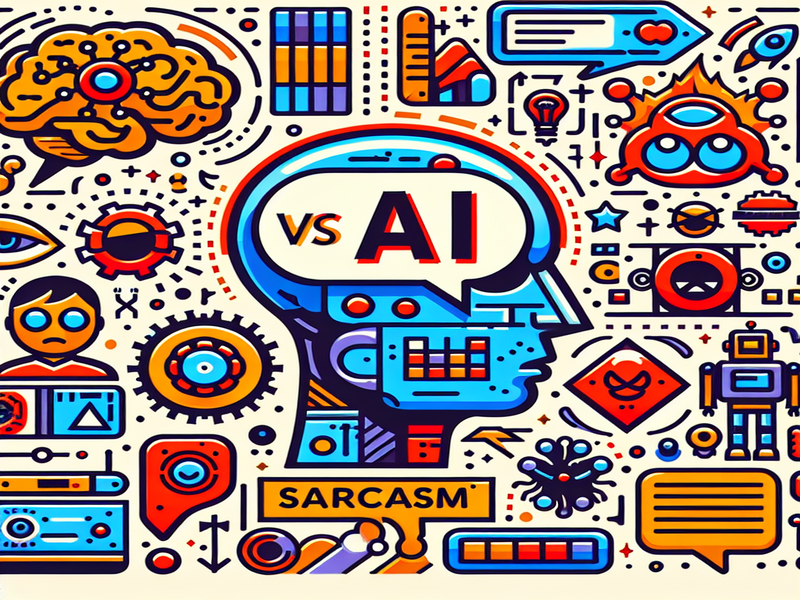- Updated: March 17, 2024
- 3 min read
AI vs Sarcasm: Will it Ever Understand
Understanding human emotions has always been a complex task, even for humans themselves. When it comes to artificial intelligence (AI), this task becomes even more challenging. Among the plethora of human emotions, sarcasm stands out as a particular challenge for AI. The multi-layered and subjective nature of sarcasm makes it difficult for AI to detect and interpret accurately.
The Challenge of Sarcasm for AI
Sarcasm, by its very nature, is multi-dimensional and highly subjective. It involves saying one thing but meaning another, often in a humorous or biting way. This complexity poses a significant challenge for AI. Despite advancements in natural language processing (NLP) and machine learning, AI still struggles to understand the subtleties and nuances of human language, particularly when it comes to sarcasm.
Moreover, sarcasm often relies on context, tone of voice, and prior knowledge, all of which are difficult for AI to grasp. For example, the phrase “Oh great, just what I needed” could be interpreted as either sincere or sarcastic depending on the context, tone, and the speaker’s usual manner of expression.
How UBOS Helps AI Understand Emotions
Despite these challenges, strides are being made in the field of AI emotion detection, thanks to platforms like UBOS. UBOS’s low-code platform enables developers to create AI applications that can better understand and interpret human emotions, including sarcasm.

By leveraging advanced machine learning techniques and a vast database of human interactions, UBOS’s AI applications are capable of detecting sarcasm with a higher degree of accuracy than ever before. Furthermore, UBOS’s Workflow Automation Studio allows developers to automate complex tasks, including emotion detection, thereby enhancing the AI’s ability to understand sarcasm and other complex emotions.
The Future of AI and Emotion Detection
As AI technology continues to advance, so too will its ability to understand human emotions. In the future, we can expect AI to not only detect sarcasm but also to understand a wide range of complex emotions, from empathy to irony.
Platforms like UBOS will play a crucial role in this evolution. By providing developers with the tools they need to create sophisticated AI applications, UBOS is helping to push the boundaries of what AI can achieve in the realm of emotion detection.
Conclusion
In conclusion, understanding human emotions, particularly sarcasm, is a complex challenge for AI. However, with the help of platforms like UBOS, AI is making significant strides in this field. As AI continues to evolve, we can look forward to a future where AI can understand and interpret human emotions with a high degree of accuracy, enhancing human-AI interactions and opening up new possibilities for AI applications.
FAQs
- Can AI understand sarcasm? While AI has traditionally struggled with understanding sarcasm, advancements in machine learning and natural language processing are improving its ability to detect and interpret sarcasm.
- How does UBOS help AI understand emotions? UBOS provides a low-code platform that enables developers to create AI applications capable of understanding and interpreting human emotions, including sarcasm. It leverages advanced machine learning techniques and a vast database of human interactions.
- What is the future of AI and emotion detection? The future of AI in emotion detection looks promising. With continuous advancements in AI technology, it is expected that AI will be able to understand a wide range of complex emotions. Platforms like UBOS will play a crucial role in this evolution.
 From vibe coding to vibe deployment. UBOS MCP turns ideas into infra with one message.
From vibe coding to vibe deployment. UBOS MCP turns ideas into infra with one message.